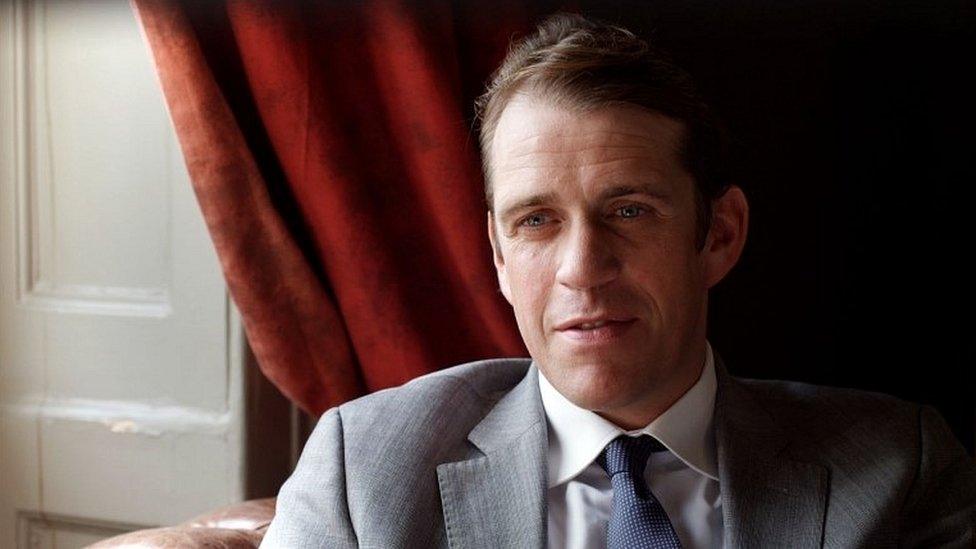Ukraine war: Boris Johnson urges renewed world push to halt Russia's invasion
- Published
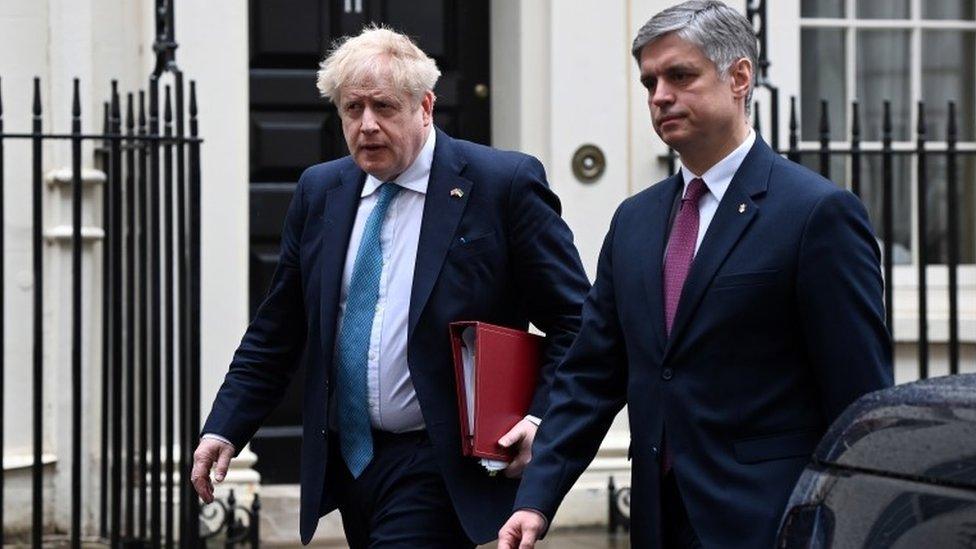
Boris Johnson held talks with Ukrainian Ambassador Vadym Prystaiko at Downing Street last week
World leaders must mount a renewed effort to ensure Russia's "horrific" invasion of Ukraine fails, Boris Johnson has said.
Writing in the New York Times, the prime minister said "it is not future historians but the people of Ukraine who will be our judge".
Mr Johnson set out a six-point plan, including rapidly strengthening defences in Nato countries.
But Labour criticised the PM for not acting more quickly over sanctions.
Ahead of a series of meetings with international leaders, the prime minister said: "Putin must fail and must be seen to fail in this act of aggression.
"It is not enough to express our support for the rules-based international order - we must defend it against a sustained attempt to rewrite the rules by military force."
The invasion was condemned by 141 nations at the UN General Assembly this week while 39 countries, co-ordinated by the UK, made the largest-ever referral for war crimes to the International Criminal Court.
But Mr Johnson is set to call on world leaders to make a "renewed and concerted effort" to stop Russian President Vladimir Putin, Downing Street said.
In his six-point plan to maintain pressure on Mr Putin, the prime minister said:
World leaders should mobilise an "international humanitarian coalition" for Ukraine
They should also support Ukraine "in its efforts to provide for its own self-defence"
Economic pressure on Russia should be ratcheted up
The international community must resist Russia's "creeping normalisation" of its actions in Ukraine
Diplomatic resolutions to the war must be pursued, but only with the full participation of Ukraine's legitimate government
There should be a "rapid campaign to strengthen security and resilience" among Nato countries
The prime minister is also expected to deliver his message at meetings with Canadian Prime Minister Justin Trudeau and Dutch Prime Minister Mark Rutte at Downing Street on Monday.
On Tuesday, he will host leaders of the V4 group of central European nations: the Czech Republic, Hungary, Poland and Slovakia.
Downing Street says these countries are already experiencing a humanitarian crisis, with 1.4 million people fleeing Ukraine to neighbouring nations in just 10 days. Mr Johnson said: "The world is watching."
On Sunday, he spoke with Ukrainian President Volodymyr Zelensky on the phone.
No 10 said the two men discussed "the increasing threat Russia's barbaric attacks pose to Ukrainian civilians" and "the deteriorating humanitarian situation in Ukraine, precipitated by Russia's indiscriminate attacks and ceasefire breaches".
'Break morale'
In its daily assessment posted on Twitter, external, the Ministry of Defence said the scale and strength of Ukrainian resistance continued to surprise Russia.
It was likely Russia was trying to break Ukrainian morale by targeting multiple populated areas, including Kharkiv, Chernihiv and Mariupol, it added.
It went on to say the reported targeting of Russian supply lines was slowing the advance of their ground forces and there was a "realistic possibility" that Russia was concealing fuel trucks as regular support trucks.
Meanwhile, Defence Secretary Ben Wallace has warned Mr Putin not to "test" the UK.
In an interview with the Sunday Telegraph, external, Mr Wallace said: "History is littered with authoritarian leaders underestimating the wider West and the United Kingdom. He clearly underestimated the international community."
He added: "If we stick together and refuse to be intimidated then I believe he will fail."

Shadow foreign secretary David Lammy said Labour fully supported the UK joining international efforts to help Ukraine, but he called on the government to move faster on sanctioning oligarchs and politicians linked to the Kremlin.
He said: "It is inexcusable that we have fallen behind the EU and the US on the number of individuals and entities sanctioned. Ministers must move faster, acting against Putin's cronies in days not months."
Labour leader Sir Keir Starmer is calling on the government to work with him on new laws to prevent Russian oligarchs and other very wealthy people misusing the courts to avoid criticism or sanctions.
He wants legislation to prevent so-called strategic lawsuits against public participation (Slapp) - legal challenges which aim to drain the resources of opponents or intimidate them from using the courts - which Sir Keir said he fears could be used to buy time to move oligarchs' money out of reach and avoid sanctions.
Foreign Secretary Liz Truss has said she has received letters from lawyers representing people sanctioned by Britain threatening legal challenges, while Justice Secretary Dominic Raab has called such cases an "abuse of our system" and promised to address them.
It comes as the government says it is to change the law to make it easier to introduce sanctions against Russian oligarchs, after criticism the UK is acting too slowly.

Russia attacks Ukraine: More coverage
THE BASICS: Why is Putin invading Ukraine?
OLIGARCHS: The mega-rich men facing global sanctions
IN DEPTH: Full coverage of the conflict


MY 15-HOUR JOURNEY TO SAFETY: Home in Kyiv is no longer safe for Zhanna...
DOES YOUR BRAIN NEED A BOOST?: How to banish brain fog and boost your energy levels

Related topics
- Published4 March 2022
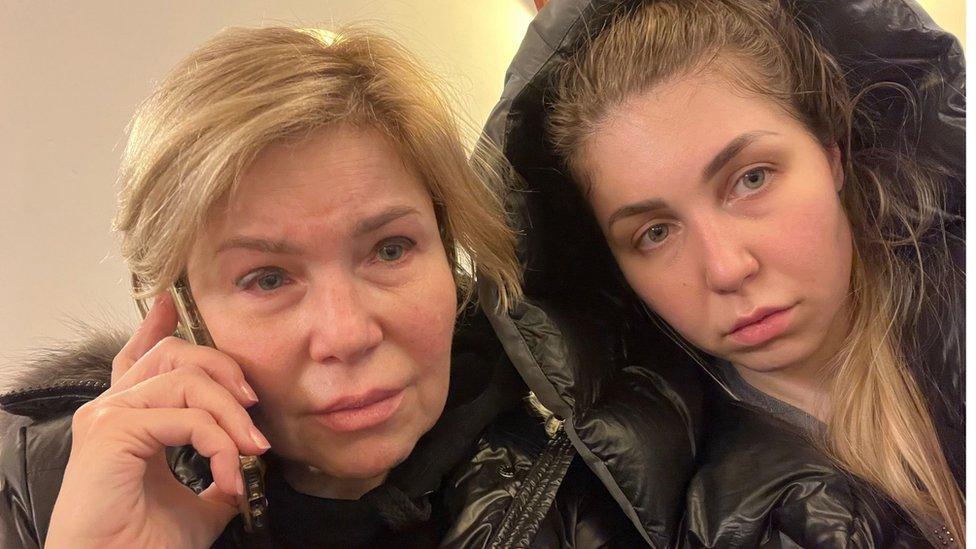
- Published4 March 2022
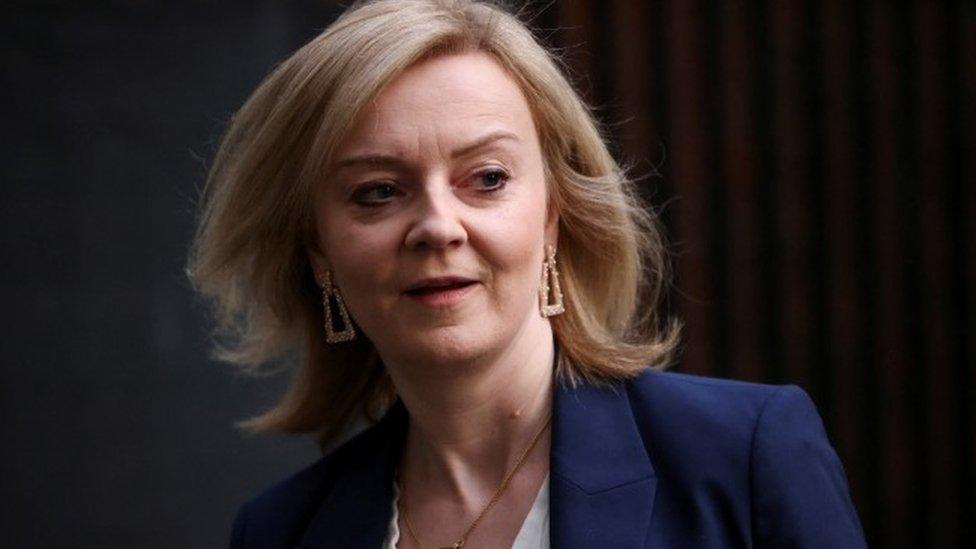
- Published4 March 2022
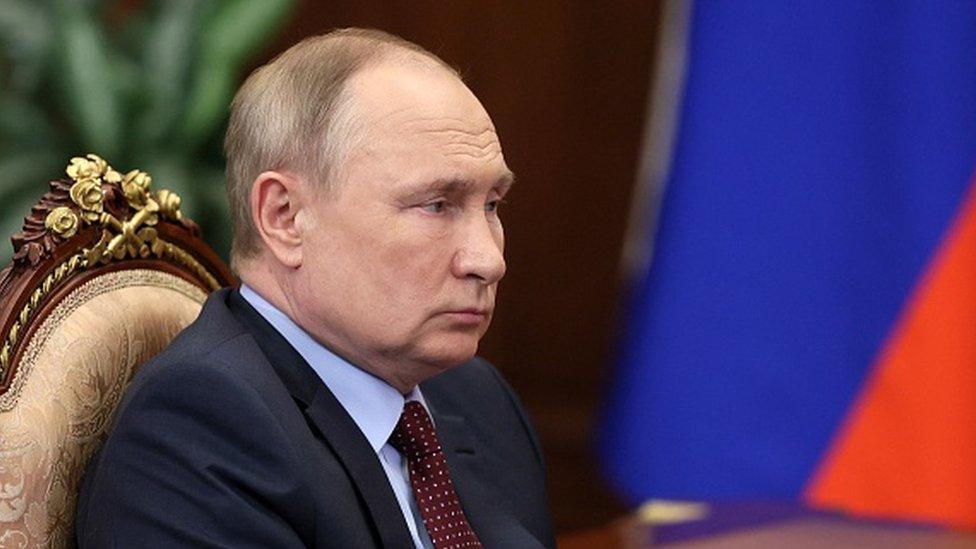
- Published4 March 2022
